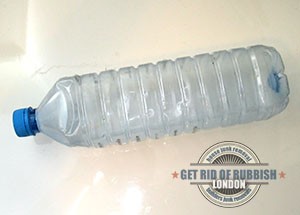Many large manufacturing corporations began their environmental protection quests more as PR stunts rather than driven by any actual environmental concerns raised by their practices. However, as the years rolled on, the environmental thing stuck and grew, it turned out that green was good, not only because it ‘protected the environment’ but also because it racked in more profit as people were more willing to buy the products of ‘green companies’. Yet more years passed and the diminishing natural resource issue came to light. All of sudden it seemed that petrol was running out, fresh water was running out etc. At that point many transnational corporations realised that ‘green’ wasn’t just a thing or good marketing (although it was) but an actual philosophy that had to be practiced and developed further.
One international soft drink manufacturer (whom will remain undisclosed for the purpose of this article) has once again come up with the next ‘green’ thing – the fully recyclable PET plant bottle. The issue with plastics clogging the World Ocean and beaches has been a long standing one. Most plastics used in manufacturing today take hundreds of years to degrade and dissolve and meanwhile emit toxins which pollute water and soil. Even degradable plastics introduced some years ago, aren’t really degradable.
The new fully recyclable PET bottle is supposed to be completely degradable as it is made entirely of plant materials. The bottle concept is nothing new really, as the company introduced it in two thousand nine, and has since manufactured thirty five billion of these bottles, and shipped them to forty countries. The bottle is fully recyclable and is made of renewable plant materials (there are also non-renewable plant materials). Packaging is also being manufactured using renewable plant materials, in this case the main ingredient in the waste material leftover from sugarcane manufacturing process. Each pack (housing the ecofriendly bottles) contains a minimum of thirty percent sugarcane scraps. The new plant bottle is marked with special signage so that people can always choose the right one.
 The use of recyclable materials in bottling and packaging is estimated to have saved more than three hundred and fifteen thousand metric tonnes of carbon dioxide emissions – and that’s just one company alone. The same soft drink manufacturer launched a low carbon program for their product supply fleet – a large percentage of their delivery vehicles were fitted with hybrid engines that greatly reduce carbon dioxide emissions. They plan to fit all vehicles with hybrid engines in the next couple of years.
The use of recyclable materials in bottling and packaging is estimated to have saved more than three hundred and fifteen thousand metric tonnes of carbon dioxide emissions – and that’s just one company alone. The same soft drink manufacturer launched a low carbon program for their product supply fleet – a large percentage of their delivery vehicles were fitted with hybrid engines that greatly reduce carbon dioxide emissions. They plan to fit all vehicles with hybrid engines in the next couple of years.
Manufacturing of fully recyclable bottles (in this case), makes sense on many levels as companies save from buying and using new raw materials thus they spare the environment from extra exploitation (at least in theory). Increased use of recyclable materials reduces landfill, rubbish removal and waste management costs. In turn, this makes the manufacturing process more efficient, for most products anyway. Using recyclables in production is both financially and environmentally beneficial. Though positive results will not come easy if collective thought is missing in companies and governments responsible for imposing and implementing such regulations and programs.
